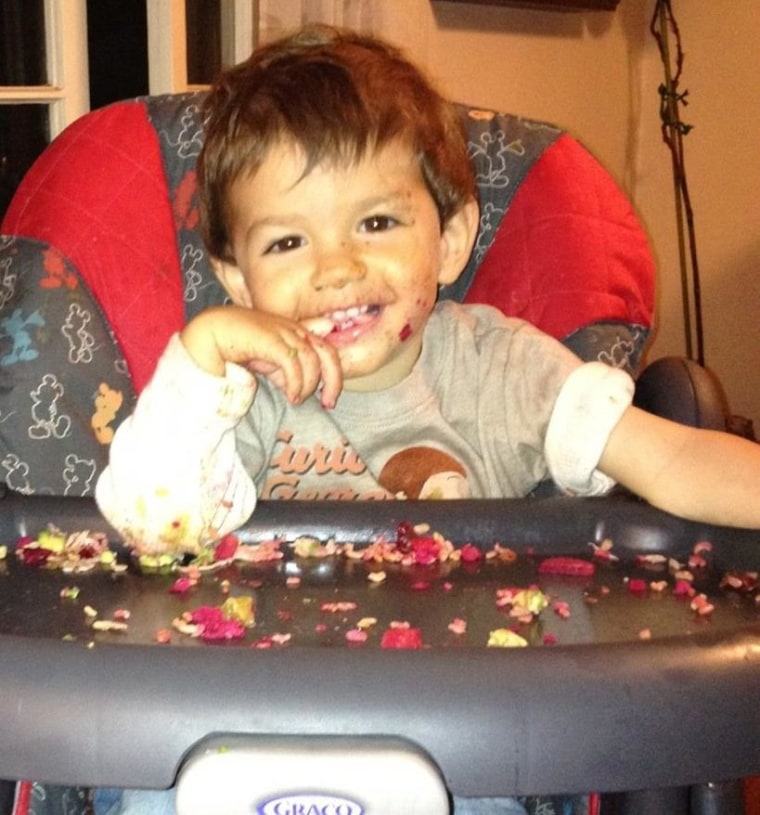She gained fame as Winnie Cooper on "The Wonder Years," and now actress Danica McKellar is a mom and serious mathematician with four books and a published theorem to her name (the Chayes-McKellar-Winn Theorem). She's on a mission to demystify math, especially for girls. Here are her tips for ensuring your children grow up to love math, not fear it.

Much like how moms can model positive body image, we can influence our kids' outlook on math in healthy ways. Math is a crucially important subject that all too often gets rejected, especially by girls, and then they risk missing out on the brain-building, confidence-boosting gifts that tackling math has to offer. Here are some tips for how to start your kids off on the right foot, and keep math phobia away!
1. Starting when they are toddlers, point out math in everyday life.
Introduce addition ("more") and subtraction ("take away" and "less") with their cereal O's or crayons. As they get a little older, explain what unit prices are at the store and how they compare to the total price -- this is multiplication and division. It's OK if they don't fully "get" it right away. As they get into middle school, find math challenges from outside resources like online sites or books (see the Reality Math sidebars in my books). The main point is to train them from an early age to see math as a normal part of life. It’s harder to develop a phobia of something that is part of your everyday life!
Related: Read an excerpt of "Girls Get Curves: Geometry Take Shape"
2. Hide your math phobia, if you have any.
My mom didn't want to pass along her fear of spiders to me and my sister, so she pretended not to be afraid of them, and it totally worked. Same thing works for math. If you have a fear or phobia about numbers, don't let your kids know! Letting them hear things like, “Oh I never did well in math,” or “I’m just not a numbers person” at a young age is likely to lower the bar in their own minds, and subconsciously allows them to give up on math as soon as they struggle with it.
3. Use money.
No, I don’t mean pay them to do their math homework! From an early age, kids understand that money makes the world go round. As soon as they start to get an allowance, teach them about saving money by asking things like, “If you don’t spend any allowance for two months, how much will you have saved?” or “How long will it take you to save up for that toy you saw on TV?” And have them keep track. As they get older, you could tell them about percentages in the context of APR’s for credit cards, and how a late payment actually increases the amount you paid for an item. The value of money is a great motivator to think about numbers, and this is also an opportunity to start fiscally responsible habits, too!
Related: How's your body image? Check out our survey
4. Provide support and encouragement during rough patches.
Pay attention, and if your child is floundering in math class, get him or her additional support, whether it’s finding supplemental resources like books, tutors, or helping them yourself. Math is cumulative -- unlike most subjects in school, each new concept is built upon the ones before it, so if an important concept gets missed, it can be much harder to understand the following lessons.
5. Brush up on your own math skills.
This will strengthen all of the above strategies, and as a bonus, will improve your life, too!
Danica McKellar -- actress, author and mathematician -- is mom to son Draco, who turns 2 next month. You can find her on Twitter and on her website, danicamckellar.com. Her latest book, "Girls Get Curves: Geometry Takes Shape," and her three other books about math are available in stores.
More stories from TODAY Moms
Daughter has Olympic dreams, but does mom?
Chalk wars: Mom ticketed for child's drawing
A boy has left, a man will return: Devising a mom's rite of passage